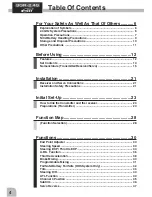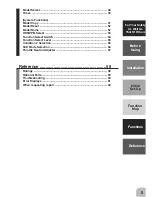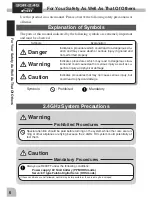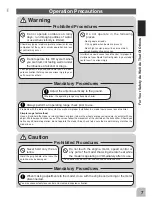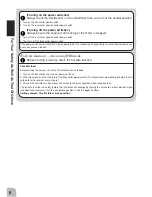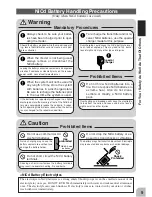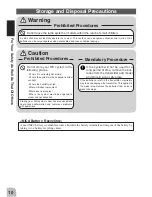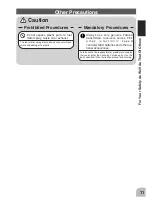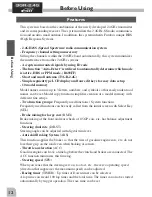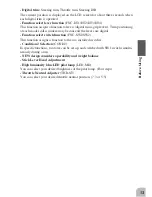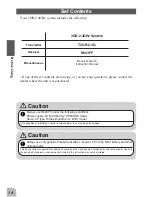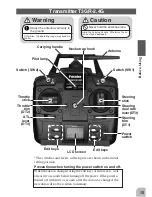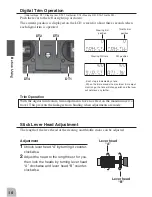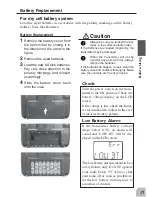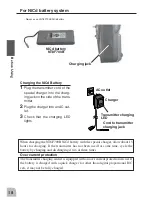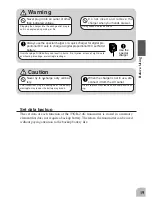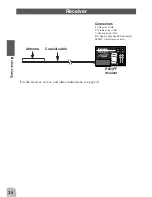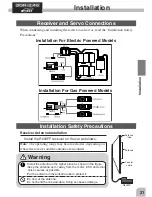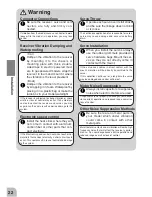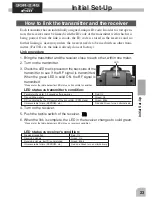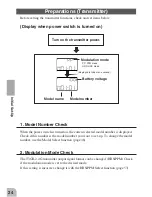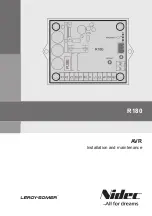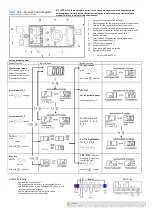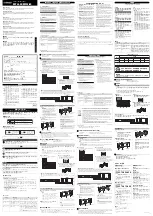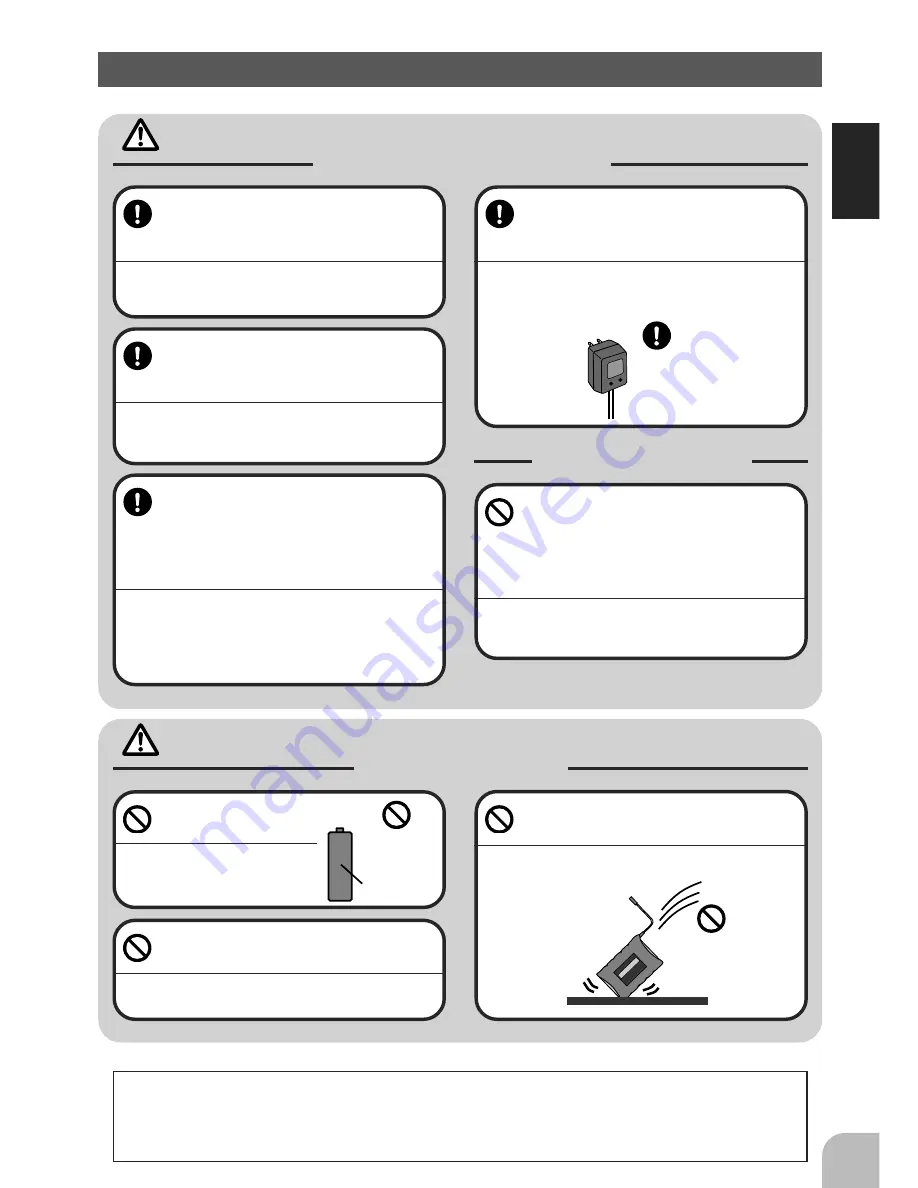
9
For Your Safety As Well As That Of Others
NiCd Battery Handling Precautions
(Only when NiCd batteries are used)
Warning
Mandatory Procedures
Always check to be sure your batter-
ies have been charged prior to oper-
ating the model.
Should the battery go dead while the model is operat-
ing, loss of control will occur and create a very dan-
gerous situation.
To recharge the transmitter and/or re-
ceiver NiCd batteries, use the special
charger made for this purpose.
Overcharging could cause the NiCd battery to over-
heat, leak or explode. This may lead to fire, burns,
loss of sight and many other types of injuries.
Caution
Prohibited Items
Do not use commercial AA
size NiCd batteries.
Quick charging may cause the
battery contacts to overheat and
damage the battery holder.
Do not short circuit the NiCd battery
terminals.
Causing a short circuit across the battery terminals
may result in abnormal heating, fire and burns.
Do not drop the NiCd battery or ex-
pose it to strong shocks or vibrations.
The battery may short circuit and overheat. Electrolyte
may leak out and cause burns or chemical damage.
When the model is not being used,
always remove or disconnect the
NiCd battery.
Leaving the battery connected could create a dangerous
situation if someone accidentally turns on the receiver
power switch. Loss of control would occur.
Special
Charger
Shock
Prohibited
NiCd AA size
batteries.
Use
prohibited
Do not throw NiCd batteries into a
fire. Do not expose NiCd batteries to
extreme heat. Also do not disas-
semble or modify a NiCd battery
pack.
Overheating and breakage will cause the electrolyte
to leak from the cells and cause skin burns, loss of
sight as well as other injuries.
When the system will not be used for
any length of time store the system
with batteries in a discharged state.
Be sure to recharge the batteries prior
to the next time the system is used.
If the batteries are repeatedly recharged in a slightly
discharged state the memory effect of the NiCd bat-
tery may considerably reduce the capacity. A reduc-
tion in operating time will occur even when the batter-
ies are charged for the recommended time.
<NiCd Battery Electrolyte>
The electrolyte in NiCd batteries is a strong alkali. Should you get even the smallest amount of the
electrolyte in your eyes, DO NOT RUB. Wash immediately with water and seek medical attention at
once. The electrolyte can cause blindness. If electrolyte comes in contact with your skin or clothes,
wash with water immediately.
Prohibited Items



